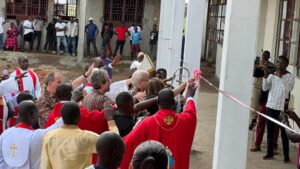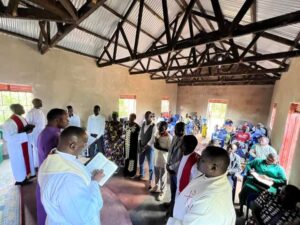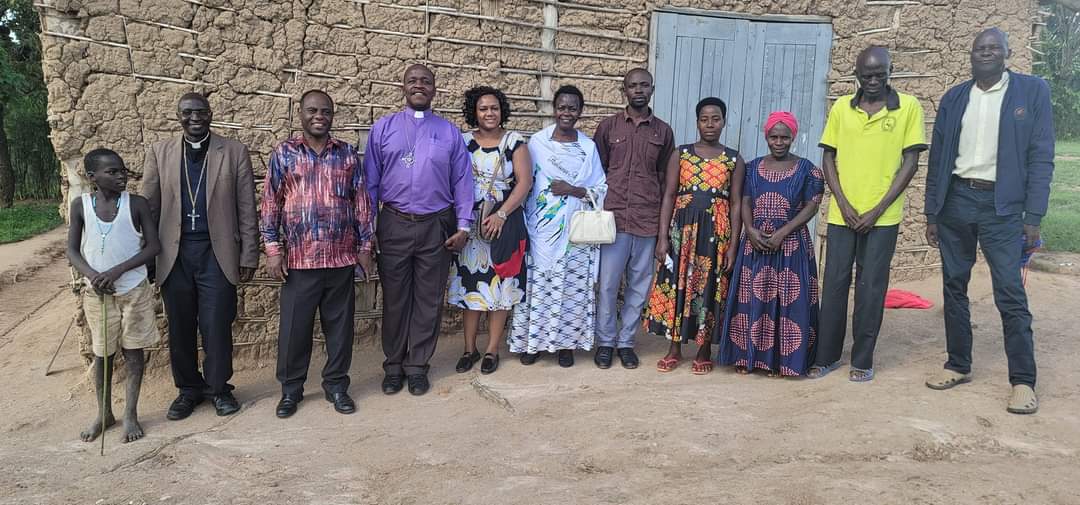
The Lutheran church of Uganda (LCU) is part of the Evangelical Lutheran church worldwide which has its beginnings in 1517 AD when Dr. Martin Luther publically called for the correction of errors in the Medieval Church.
The Lutheran Church started in 1993 in Jinja, Eastern Uganda. Since then it has spread to all regions of Uganda with over 45,000 Lutherans distributed in 137 congregations.
The LCU shares a common faith with other Traditional Christian denominations. LCU accepts;
⦁ The Bible as the true source of Christian Love, Guidance and Doctrine.
⦁ The Ecumenical Creeds namely; – The Apostles’ Creed, Nicene Creed and Athanasian Creed.
The LCU accepts without reservation the following;
⦁ Justification is by God’s Grace alone, through Faith alone, in Christ alone.
⦁ Sacred Scriptures of the Old and New Testaments as the written Word of God and the only Rule and Norm of Faith and Practice.
The Headquarters of the Lutheran church of Uganda are situated in Kampala, Kansanga, at Aqua House Plot 321 Ggaba Road, next to Kampala International University, P. O. Box 33528 Kampala.

Historical background.
The idea of starting the Lutheran church in Uganda was initiated in 1993 by five lay people including Mr. Nattema David, Mr.Balidawa Henry, Mr. Karamau Joshwa (RIP), Ms Byakutaga Jane (RIP) and Ms. Muyambe Persis (RIP). They were later joined by other people namely; Ms. Nazziwa Jane, Mr. Kibumba Henry, and Mr. Bameka Isabirye Charles who is now the presiding Bishop of the Lutheran Church of Uganda.
These three men and two women after making two visits to Kenya in the early 1993, first invited the Evangelical Lutheran Church in Kenya. When the officials of the Kenyan Church visited in April 1993, they recommended the establishment of Lutheran Church along the Kenya – Uganda Boarders for easy Mission work by the pastors serving near the boarders on the Kenya side. The recommendation was never bought.
Later, Mr David Mattema came into contact with Ghanaian Lutheran students at Day Star University in Kenya, Rev Isaaka Gyampandu coming from Evangelical Lutheran Church of Ghana (ELCG). Rev Gyampandu having talked to his Bishop Rt Rev Dr Paul Kofi Fynm, about the possibility of starting a Lutheran Mission field in Uganda, was sent by his him Church body, ELCG in July 1993 to assess the viability of establishing ta Lutheran ministry in Uganda.

After making a report to his church, he returned to prepare ground for the visit of his Bishop which took place in Feb 1994.
In Sep 1994, the Evangelical Lutheran Church of Ghana sent two pioneers Lutheran Missionaries; Rev Isaac Gyampandu and Evangelist John Donkoh to begin the process of having a Lutheran Mission established in Uganda.
In 1994, the Lutheran Church Missouri Synod, working in partnership with Evangelical Lutheran church of Ghana sent a delegation of officials including Rev Alan Burkam, Rev Robert Ruegner, Rev Robert Matson, to Uganda to start a Lutheran ministry.
Consequently, the first Lutheran worship service was conducted at Jinja Police Officers’ Mess on Reformation Sunday on 30th, Oct 1994 with Rev Isaac Gyampaddu preaching and missionary John Donkoh conducting the worship service.
The Lutheran Church in Uganda therefor started under the mentorship of the Evangelical Lutheran Church of Ghana working with the partnership with LCMs, United States of America.

STATEMENT OF FAITH
The LCU and every Communicant Church Member Upholds, Adheres, and Accepts without reservation the basic tenets of the Christian faith, as stated hereunder:
⦁ The unity of God the Father, God the Son, God the Holy Spirit (One Triune God) – The Holy Trinity.
⦁ The sovereignty of God in Creation, Revelation, Redemption and Final Judgement of Mankind.
⦁ The divine inspiration and entire trust worthiness of the Holy Scriptures as originally given by God Himself and its Supreme Authority in all matters of Faith, Practice, and Conduct.
⦁ The Universal Sinfulness and Guilt of Humanity since the fall of Adam and Eve rendering them subject to God’s Wrath and Condemnation without respect of persons and without discrimination on account of age, gender, race, nation, colour, social position, or otherwise.
⦁ The Unity of all Believers in Christ without respect of persons and without discrimination on account of age, gender, race, nation, colour, social position or otherwise.
⦁ The Bodily Resurrection of our LORD JESUS CHRIST from the dead and His glorious ascension to the right hand of God the Father.
⦁ The Justification of a Sinner by the Grace of God alone through faith alone in Jesus Christ our Lord alone.
⦁ The Presence and Power of the Holy Spirit in the work of Regeneration.
⦁ The one Holy Universal Church, which is the body of Christ and to which all True Believers Belong.
⦁ The Expectation of the personal return of the risen LORD JESUS CHRIST to judge the living and the dead.
⦁ The LCU and every communicant Church Member accepts without reservation the following;
⦁ All the symbolical Books of the Lutheran Church as a true and unadulterated statement and exposition of the Word of God, namely the: three Ecumenical Creeds, Unaltered Augsburg Confession, Apology for the Augsburg Confession, Smalcald Articles, Large Catechism and Small Catechism of Luther, and the Formula of Concord.
⦁ To unite in one corporate body the members of the Church who acknowledge and remain true to the Book of Concord of the Year of our Lord 1580, as a true confession of Biblical and Christian doctrine.
THE OBJECTIVES OF THE LUTHERAN CHURCH OF UGANDA
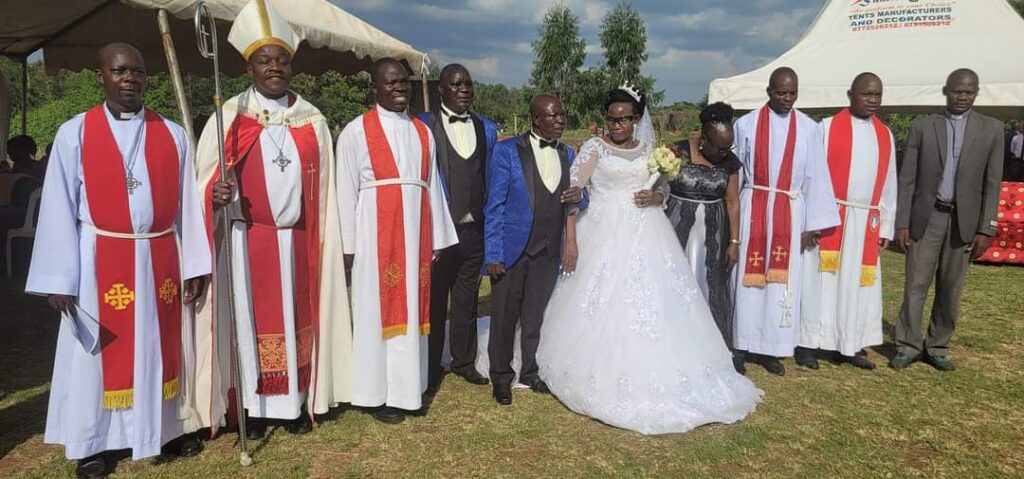
⦁ Participate, contribute and enhance the fulfilment of the Great Commission of our Lord Jesus Christ as commanded in Matthew 28: 16-20.
⦁ Train, Equip, Commission, Ordain and or Consecrate; Church members, Teachers, Evangelists, Missionaries, Ministers, Pastors, and Bishops for works of service in the Church.
⦁ Establish, support, and promote the establishment of Bible Study Centres, Preaching Stations and Lutheran Congregations in Uganda and other parts of the world, where ever the need arises.
⦁ Publish and distribute Bibles, church related books, religious periodicals, and other Christian books, and literature according to the needs of the Church and its Congregations.
⦁ Establish, build, and develop Lutheran Theological Seminaries, Universities, Colleges, Schools, and other institutions for Christian instructions and promotion of Formal Education.
⦁ Assist, support, and advise local congregations, Teachers, Evangelists, Missionaries, Ministers, Pastors, and Bishops serving under the apostolate of the Church and to supervise such parties as to the true Biblical and Christian doctrine, practice, and performance of their official duties.
⦁ Take a Holistic Approach to Christian ministry by establishing, supporting, and promoting projects and programs which serve the Social, Physical, and general Development needs of Ugandans as a means of fighting and eradicating Illiteracy, Poverty and Disease in our communities.
⦁ Purchase, hold, administer, and sell property of every description in the interests of fulfilling the objectives of the Church.
⦁ Accept, hold, administer, and if deemed advisable, dispose of legacies, donations, commercial papers, and legal documents of every description in the interest of the work of the Church;
⦁ Seek and obtain loans in monies and or in material things throughout and outside Uganda, as needed to realize the goals and objectives of the Church.
Mission ↗

“Growing in Jesus Christ and Making Him Known to All people by Living, Preaching and Teaching the Word of God and Celebrating the Sacraments, While Holistically Nurturing Believers and Raising Leaders and Resources for Church and Community Outreach”
Vision ↗

“A Christ-Centered Growing Lutheran Church Body Committed to Fulfilling the Great Commission of our Lord Jesus Christ.”

Core Values ↗
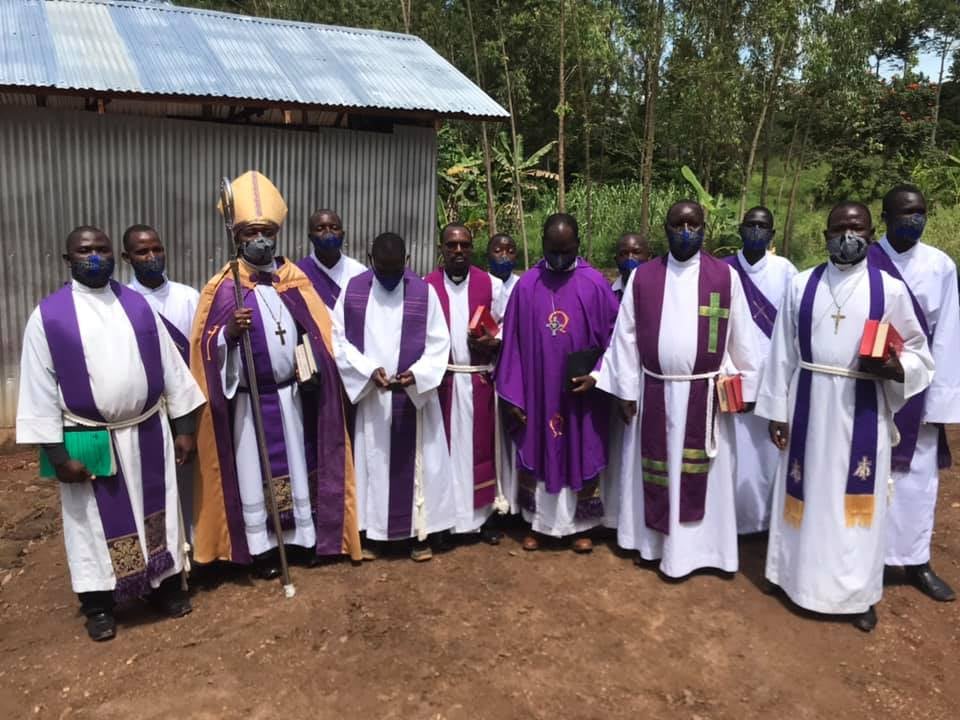
⦁ Honour God in life and deeds
⦁ Believes in the authenticity of the Holy Scripture of Sixty six(66) books of the Old and New Testament
⦁ Believes in the Salvation of mankind by Grace alone through Faith alone in Jesus Christ alone as Scripture alone.

